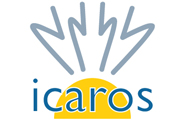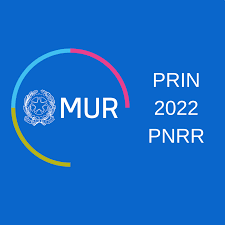LeCoR-PROC
PROJECT SYNOPSIS
Surgical techniques have been significantly changed by robotics. Enhanced dexterity, ergonomics, motion scaling, and tremor filtering are some of the improvements over traditional laparoscopy. The surgeon must acquire sufficient knowledge and abilities in order to use the robot safely and effectively, and novice surgeons always receive intensive training in virtual and simulated environments. Surgeons' proctoring (a proctor is an instructor who is responsible for the actions of other surgeons) allows hospitals to maintain standardized surgical treatment quality across several sites. Severe issues may occur due to the extremely dynamic and safety-critical environment. By directing the leading surgeon toward the most effective intervention, surgical proctoring enables sustaining high-quality intervention, intervening physically or verbally in crucial moments. However, certified expert proctors are becoming extremely limited in opposition to the demand for high-quality robotic surgical training. For these reasons, an intelligent robotic system could provide great benefits in proctoring and surgical training. Additionally, advanced computer vision algorithms and novel control techniques incorporate components that lessen the physical and mental stress on the surgeon and improve the efficiency of surgical procedures. This research intends to provide effective approaches that allow the robot to gain expert cognitive and procedural surgical abilities while assisting surgeons throughout procedures, similarly to an experienced proctor. Surgeon's body measures, such as: kinetic movements of upper limbs, cardiac electrical activity, muscular electrical activity, breathing activity, electrodermal activity, as well as surgical site information (extracted from endoscopic images) represent powerful tools to identify and quantify surgeon skills and proctor functions in order to develop novel training technologies and advanced assistive robot control overcoming the teleoperation paradigm. Advanced wearable sensor technology and motion capture cameras, will be utilized to monitor the physical states of the proctors and surgeons. Three distinct surgeon categories will be explored, each categorized according to their level of expertise (expert, intermediate, and novice). Data will be collected during ordinary surgical operations and tutoring sessions using the da Vinci Xi. The developed innovative assistive technologies will be tested on the da Vinci Research Kit and simulation environments. Data analysis will yield quantitative indices, with the key parameters being the execution time and intervention quality. Artificial Intelligence techniques will be utilized to process the acquired data and establish a reference set, allowing the robotic system to learn where, when, and how to act like an expert surgeon. As a result, the robot can react and support the surgeon in real-time by employing verbal and acoustic signals and advanced assistive control strategies.
Surgical techniques have been significantly changed by robotics. Enhanced dexterity, ergonomics, motion scaling, and tremor filtering are some of the improvements over traditional laparoscopy. The surgeon must acquire sufficient knowledge and abilities in order to use the robot safely and effectively, and novice surgeons always receive intensive training in virtual and simulated environments. Surgeons' proctoring (a proctor is an instructor who is responsible for the actions of other surgeons) allows hospitals to maintain standardized surgical treatment quality across several sites. Severe issues may occur due to the extremely dynamic and safety-critical environment. By directing the leading surgeon toward the most effective intervention, surgical proctoring enables sustaining high-quality intervention, intervening physically or verbally in crucial moments. However, certified expert proctors are becoming extremely limited in opposition to the demand for high-quality robotic surgical training. For these reasons, an intelligent robotic system could provide great benefits in proctoring and surgical training. Additionally, advanced computer vision algorithms and novel control techniques incorporate components that lessen the physical and mental stress on the surgeon and improve the efficiency of surgical procedures. This research intends to provide effective approaches that allow the robot to gain expert cognitive and procedural surgical abilities while assisting surgeons throughout procedures, similarly to an experienced proctor. Surgeon's body measures, such as: kinetic movements of upper limbs, cardiac electrical activity, muscular electrical activity, breathing activity, electrodermal activity, as well as surgical site information (extracted from endoscopic images) represent powerful tools to identify and quantify surgeon skills and proctor functions in order to develop novel training technologies and advanced assistive robot control overcoming the teleoperation paradigm. Advanced wearable sensor technology and motion capture cameras, will be utilized to monitor the physical states of the proctors and surgeons. Three distinct surgeon categories will be explored, each categorized according to their level of expertise (expert, intermediate, and novice). Data will be collected during ordinary surgical operations and tutoring sessions using the da Vinci Xi. The developed innovative assistive technologies will be tested on the da Vinci Research Kit and simulation environments. Data analysis will yield quantitative indices, with the key parameters being the execution time and intervention quality. Artificial Intelligence techniques will be utilized to process the acquired data and establish a reference set, allowing the robotic system to learn where, when, and how to act like an expert surgeon. As a result, the robot can react and support the surgeon in real-time by employing verbal and acoustic signals and advanced assistive control strategies.

